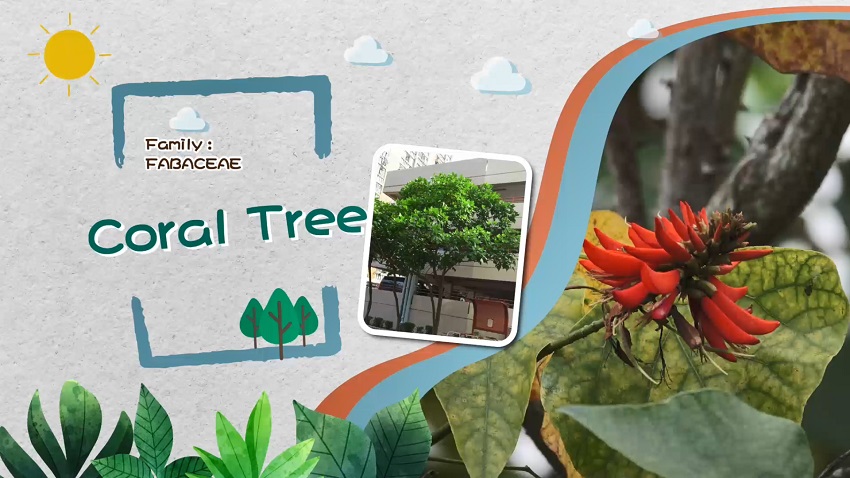| Origins | Between India and Oceania. |
|---|---|
| Applications | The Coral Tree grows rapidly. Its corolla is bright red and eye-catching. Interestingly, its inflorescences look like a bunch of hot peppers from a distance. It is often grown in gardens and along the streets. The bark of the Coral Tree can be used as the medicine “Haitongpi (海桐皮)”, exhibiting functions of dispelling wind-dampness and freeing the network vessels. In Traditional Chinese Medicine, its flowers help astringency, reduce haemorrhage, while its leaves disperse accumulations and kill parasites. |
| Toxicity | Many parts of the Coral Tree are slightly poisonous, including the roots, stems, bark, leaves, flowers and unripe seeds. Symptoms of poisoning include dizziness, limb weakness, paralysis, inhibited respiration, etc. |
| Cultivar | The cultivar Erythrina variegata L. ‘Pitca’ has a yellow midrib and lateral veins. It is occasionally found in Hong Kong. |
| Pest-derived disease | Erythrina gall wasp (Quadrastichus erythrinae Kim, 2004) could invade Erythrina species, forming galls on their branches and leaves, leading to death due to fungal infections. Since the first record in 2003, Erythrina gall wasp has spread worldwide. |







